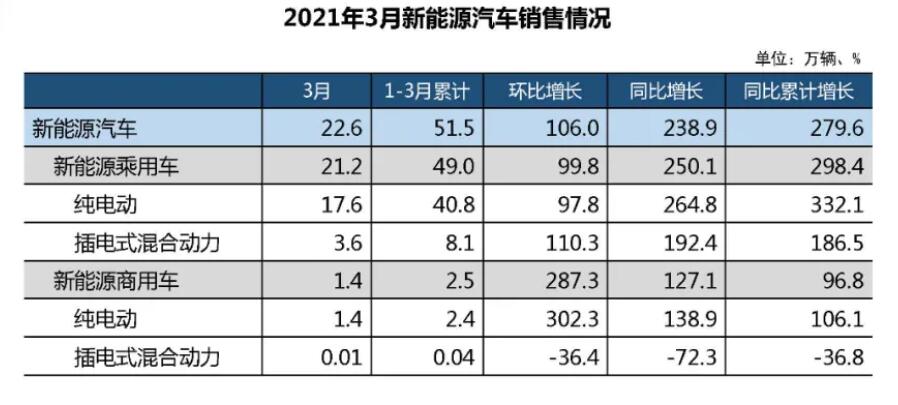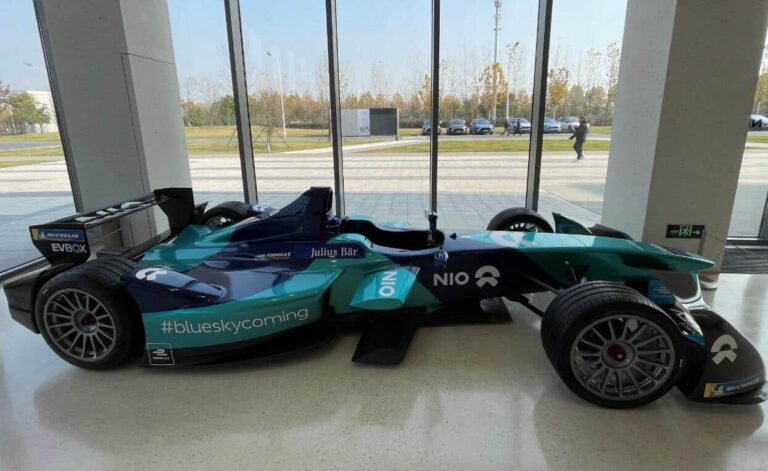China's new energy vehicle sales in March were 226,000 units, up 238.9 percent year on year, according to data released Friday by the China Association of Automobile Manufacturers (CAAM).
Pure electric vehicle sales in March were 190,000 units, up 2.5 times year on year.
Plug-in hybrid vehicle sales were 36,000 units, up 1.9 times year on year.
Fuel cell vehicle sales were 59 units, up 63.9% year-over-year.
Sales of all vehicles in China in March were 2.526 million, up 74.9% year-over-year, the data showed.
From January to March, China's new energy vehicle sales were 515,000 units, up 2.8 times year on year.
Pure electric vehicle sales from January to March were 433,000 units, up 3.1 times year on year.
Plug-in hybrid vehicles sold 82,000 units from January to March, an increase of 1.8 times year on year.
Sales of fuel cell vehicles were 150 units from January to March, down 27.5% year on year.
Separately, China Passenger Car Association (CPCA) data released Friday showed that China's wholesale sales of new energy passenger vehicles reached 202,000 units in March, up 101.1 percent from February and 261.3 percent year-over-year.
Among them, wholesale sales of pure electric vehicles were 169,000 units, up 252.2 percent year on year. Sales of plug-in hybrid vehicles were 33,000 units, up 313.3% year on year.
Companies with wholesale sales of new energy passenger vehicles exceeding 10,000 units in March included SAIC-GM-Wuling with 41,491 units, Tesla China with 35,478 units, and BYD with 23,906 units.
Tesla Model 3 sales in March were 25,327 units, up 85 percent from the previous month.
Model Y sales exceeded 10,000 in a single month, reaching 10,151 units, up 119 percent from the previous month.
The CPCA said that prices in the Chinese car market were largely stable in the first quarter, largely unaffected by the chip shortage, and there were no out-of-stock price increases for individual models.
Although production of 8-inch wafers for automobiles has begun to increment, a series of fortuitous events led to increased uncertainty in chip supply, posing some risk to incremental production in April, the CPCA said.

